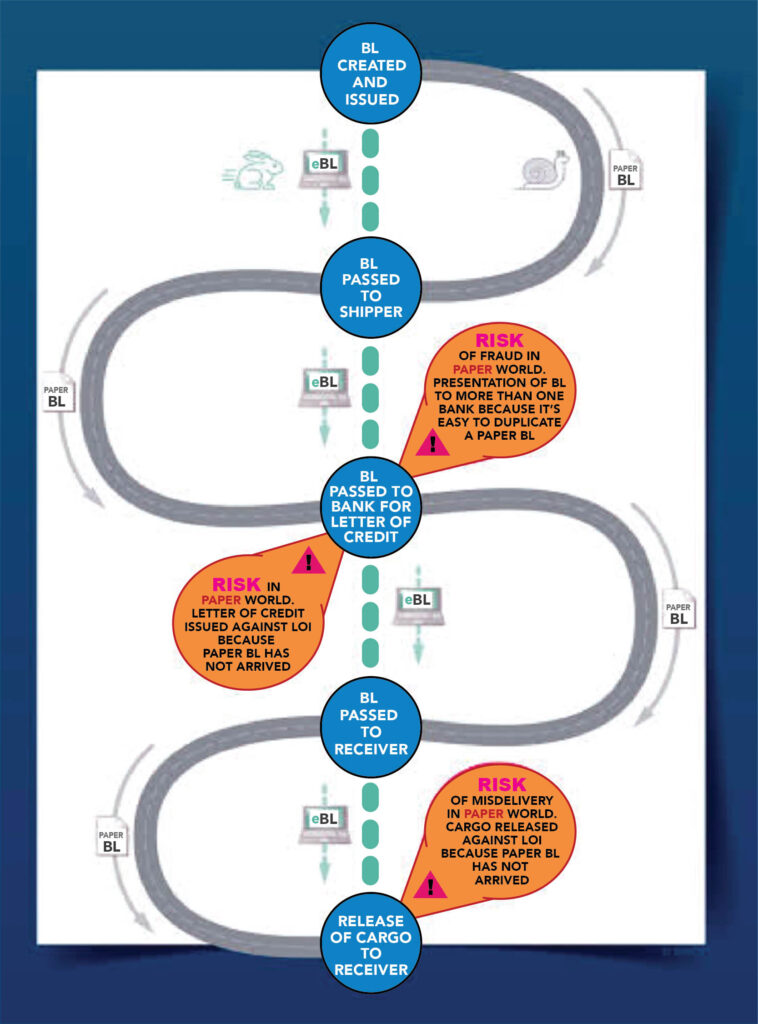
When courier delays delivery of original Bill of Lading (B/L) to an Importer, the Importer could give a Letter of Indemnity (LoI) to Shipping Lines and take the cargo. If there is a mis-delivery (i.e. there turns up another claimant with original B/L), Ship Owner becomes liable. This risk is covered by P&I club. One of P&I Insurer’s nightmares today is liability due to honest mis-delivery by the Ship Owner/Operator to a Consignee, who has taken bank finance against the cargo delivered to him. In such cases, Banks which finance the cargo come after the Shipping Company, with the original B/L. Shipping company then needs to pay the Bank and enforce the LoI’s they took from the Consignee.
Further, physical B/L always creates bottleneck for hish-sea sale traders who need to endorse the B/L to buyers, each time the goods in ship are traded. Further, Carrier needs to be notified and the Ship’s cargo manifest is to be amended. Financing Bank, if any, needs to be informed as well.
All these woes can be prevented if B/L becomes electronic and its lawful possessor is also in the system, including the records of the Captain on real time. This needs co-operation from the buyer, seller, shipping lines, customs and banks. UK’s Law Commission is working on a Law to enable electronic management of Bill of Lading.
When courier delays delivery of original Bill of Lading (B/L) to an Importer, the Importer could give a Letter of Indemnity (LoI) to Shipping Lines and take the cargo. If there is a mis-delivery (i.e. there turns up another claimant with original B/L), Ship Owner becomes liable. This risk is covered by P&I club. One of P&I Insurer’s nightmares today is liability due to honest mis-delivery by the Ship Owner/Operator to a Consignee, who has taken bank finance against the cargo delivered to him. In such cases, Banks which finance the cargo come after the Shipping Company, with the original B/L. Shipping company then needs to pay the Bank and enforce the LoI’s they took from the Consignee.
Further, physical B/L always creates bottleneck for hish-sea sale traders who need to endorse the B/L to buyers, each time the goods in ship are traded. Further, Carrier needs to be notified and the Ship’s cargo manifest is to be amended. Financing Bank, if any, needs to be informed as well.
All these woes can be prevented if B/L becomes electronic and its lawful possessor is also in the system, including the records of the Captain on real time. This needs co-operation from the buyer, seller, shipping lines, customs and banks. UK’s Law Commission is working on a Law to enable electronic management of Bill of Lading.
–Courtesy: Thomas Krebs, Fellow and Tutor in Law, Brasenose College Oxford.

Leave a Reply